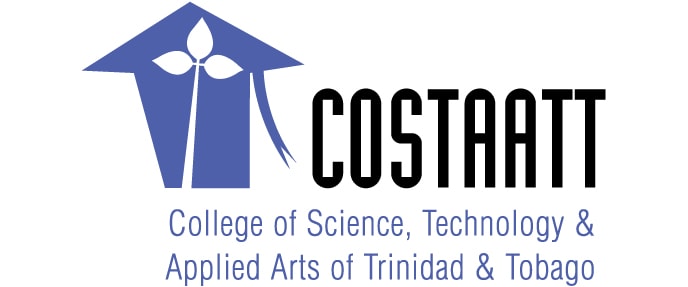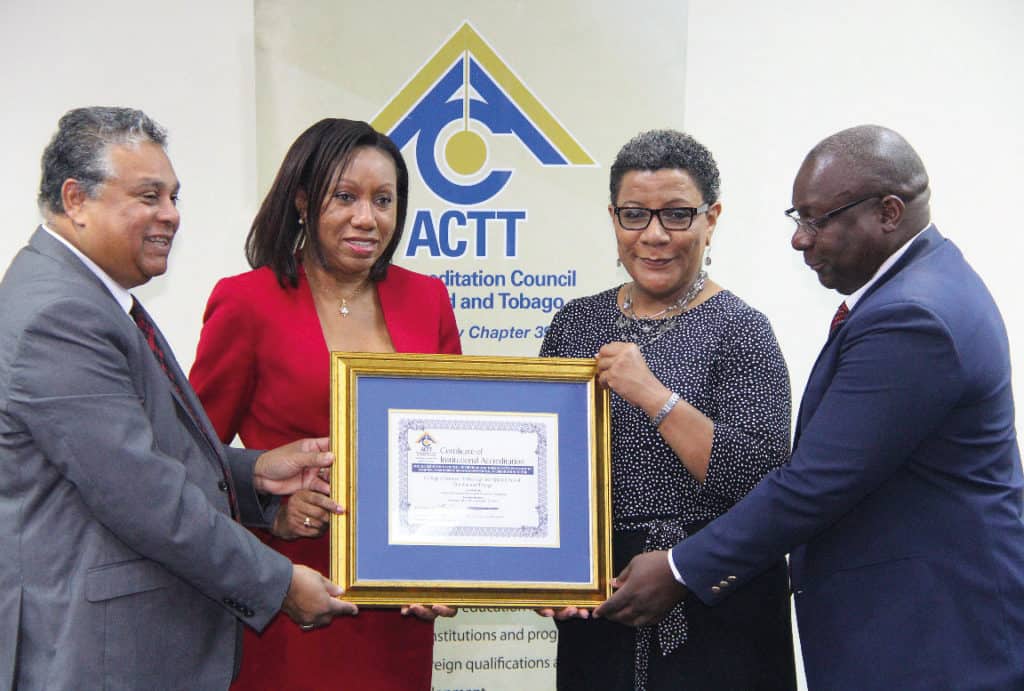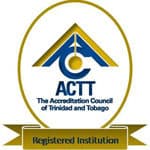Accreditation and Quality Assurance



COSTAATT is committed to the delivery of quality education that meets the needs of its stakeholders, and recognizes the critical role and contribution of quality improvement in this process. The College is also committed to a reflective and pro-active review of its operations and programme offerings, and in addition welcomes the objective analysis of its quality processes through external evaluation.
As part of the College’s quality philosophy, and in keeping with legal and regulatory frameworks, we strive to identify, redress and continually improve our quality systems and processes. As such, COSTAATT embraces the national and international quality standards and requirements set by the Accreditation Council of Trinidad and Tobago (ACTT), which was established by Act of Parliament, No. 16 of 2004, to accredit registered post-secondary and tertiary education institutions in Trinidad and Tobago.
COSTAATT is indeed proud to be the first institution in Trinidad and Tobago to have received ACTT accredited institution status for the period November 18, 2010 to November 17, 2017 (the maximum period of seven years). In 2017, the College received reaffirmation of its institutional accreditation status again for the maximum seven-year period. The College therefore holds accredited institution status until November 17, 2024.
COSTAATT’s Quality Policy is the foundation upon which its Quality Management System (QMS) has been structured. It enshrines the essence of our vision and mission and charts the College’s direction in fulfilling its quality objectives. The policy provides a framework that facilitates evaluation of the learning experience of our students and assures standards and performance that allow for planning and continuous improvement throughout the organisation. Moreover, the Quality Policy incorporates the following, which have been adopted as the College’s quality statement:
| The College is committed to:
|

The College’s Quality Council was convened in January 2008 and comprises a cross-section of academic and non-academic staff. All members of the Council have undergone training in quality management and have acquired the requisite skills and knowledge to assist in streamlining the operations, programmes and services which the College provides to both internal and external customers and stakeholders. This Council is a key component of the College’s Quality Management System, and its members are expected to play a pivotal role as change agents in the continued emergence and cementing of a quality culture.

The Department of Quality Assurance and Institutional Research (QAIR) plays a supporting role in managing the College’s QMS. The QMS allows for primacy of inputs from key stakeholders at all levels into the identification and resolution of quality issues. The department is also involved in (a) assisting internal customers to achieve their quality objectives and (b) ensuring the maintenance of quality assurance activities. The department’s director, who is a key member of the Quality Council, performs a synergistic role, interacting with stakeholders, coordinating inputs and providing support and guidance on improvement initiatives.